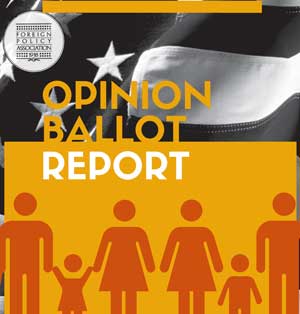Indonesia
Great Decisions 2012 | Topic 7

A country profile of one of Asia's rising stars
by James Castle
Having emerged from authoritarianism in the last 15 years, Indonesia has made remarkable strides politically, economically and socially. Yet the new, democratic Indonesia is still a developing country facing considerable challenges. How can Indonesia continue its path of growth, reform and prosperity? What is Indonesia’s role in the global community?
Read a sample from the Briefing Book article
Watch an introduction to the Television Series episode
Take the Spring Quiz for "Indonesia"
Latest News
Indonesia Latest News
- Indonesia's Democratic Hurdles - World Policy Institute (blog)
- Indonesia Makes Play for Infrastructure Funding - Wall Street Journal
- Indonesia delays execution amid int'l pressure - Xinhua
- Indonesia delays execution amid int'l pressure - Xinhua
- Indonesia Makes Play for Infrastructure Funding - Wall Street Journal
Related Organizations
-
The United States – Indonesia Society
Despite its importance to U.S. interests, Indonesia is little understood in the United States. And despite the dominance of the United States in world news, not all Indonesians understand the United States. USINDO was founded in 1994 by Indonesians and Americans who had experience in both countries and who agreed on the need for an organization to focus on expanding mutual understanding.
-
Asia Society
Asia Society is the leading global and pan-Asian organization working to strengthen relationships and promote understanding among the people, leaders, and institutions of the United States and Asia. We seek to increase knowledge and enhance dialogue, encourage creative expression, and generate new ideas across the fields of arts and culture, policy and business, and education.
-
The Heritage Foundation Asian Studies Center
The Asian Studies Center is The Heritage Foundation’s oldest research center. It was established in 1983 in recognition of the dynamic Asia-Pacific region’s growing importance to U.S. interests. Today, the Center is internationally recognized as one of the world’s preeminent policy think tanks working on Asian issues.
Recommended Readings
-
Economists with Guns: Authoritarian Development and U.S.-Indonesian Relations, 1960-1968
by Bradley Simpson
Offering the first comprehensive history of U.S relations with Indonesia during the 1960s, Economists with Guns explores one of the central dynamics of international politics during the Cold War: the emergence and U.S. embrace of authoritarian regimes pledged to programs of military-led development. Drawing on newly declassified archival material, Simpson examines how Americans and Indonesians imagined the country's development in the 1950s and why they abandoned their democratic hopes in the 1960s in favor of Suharto's military regime. Far from viewing development as a path to democracy, this book highlights the evolving commitment of Americans and Indonesians to authoritarianism in the 1960s on.
-
Pretext for Mass Murder: The September 30th Movement and Suharto’s Coup d’Etat in Indonesia
by John Roosa
On October 1, 1965, a group of Indonesian soldiers calling themselves "the September 30th movement" kidnapped and killed several high-ranking officers, claiming that they were preventing a plot against the president. But the movement itself was swiftly defeated, and another army general, Haji Suharto, took the opportunity to accuse the Communist Party of trying to overthrow the government. Seizing power for himself, he would rule Indonesia for more than three decades. -
In the Time of Madness: Indonesia on the Edge of Chaos
by Richard Lloyd Parry
In the last years of the twentieth century, foreign correspondent Richard Lloyd Parry found himself in the vast island nation of Indonesia, one of the most alluring, mysterious, and violent countries in the world. For thirty-two years, it had been paralyzed by the grip of the dictator and mystic General Suharto, but now the age of Suharto was coming to an end. Would freedom prevail, or was the “time of madness” predicted centuries before now at hand? A book of hair-raising immediacy and a riveting account of a voyage into the abyss, In the Time of Madness is an accomplishment in the great tradition of Conrad, Orwell, and Ryszard Kapuscinski.
-
A History of Modern Indonesia
by Adrian Vickers
Although Indonesia has the fourth largest population in the world, its history is still relatively unknown. Adrian Vickers takes the reader on a journey across the social and political landscape of modern Indonesia, starting with the country's origins under the Dutch in the early twentieth-century, and the subsequent anti-colonial revolution which led to independence in 1949.
Great Decisions 2024 cover image.







